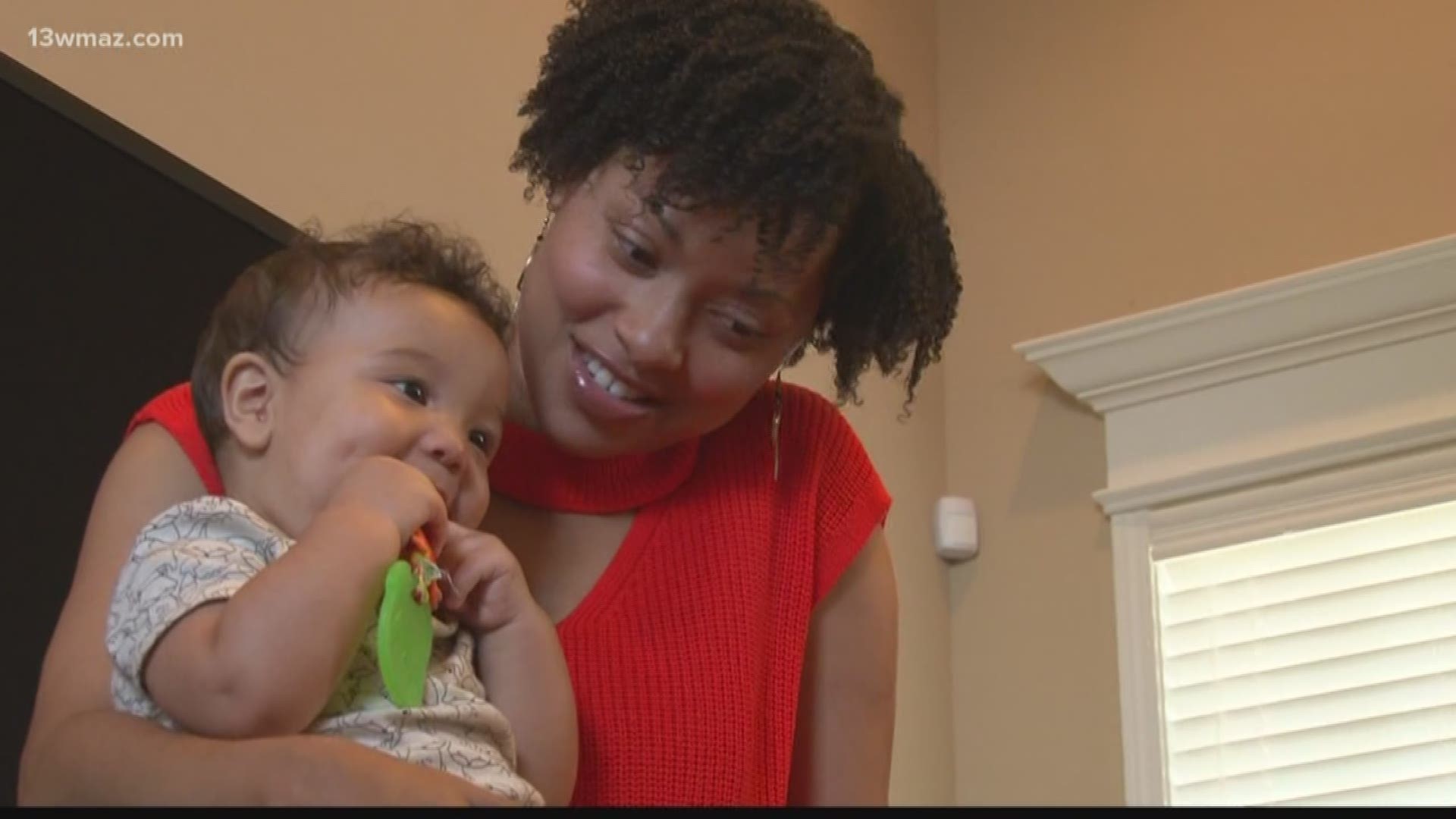Dying to give birth: That's what's happening in hospital rooms across America. Too many women are dying after childbirth. The Mothers Matter series hopes to address this issue and what is being done to stop it.
PREVIOUS CHAPTER: She was released from the hospital after giving birth. Days later, she almost died
Giving birth can be an exciting, wonderful, and scary time in a woman's life; but in Georgia it can also be deadly.
Three different state boards consisting of doctors, nurses and other healthcare providers are working to solve this disturbing healthcare trend.
13WMAZ News anchor Lori Johnson spoke to some African-American mothers who turned to a doula to help give birth.
Mothers Kim Collins and Jennifer Evans are fast friends thanks to Chelsia Ogletree, the doula who helped bring their two bundles of joy – Gabriel and Zoe -- into the world.
When it comes to giving birth, you could say Kim is a veteran. Gabriel is the baby of the Collins family – he has five other older brothers.
As Kim and any mom could tell you, no two births are alike.
"[With] the first two births the recovery was much worse as far as the bleeding because no one was checking on me after you leave the hospital. You're just on your own," said Collins.
She decided to turn to doula Chelsia for her latest pregnancy.
“We met up with a really great midwife and it was like the dream team right here in the house," said Collins.
It appears doulas are making a difference for pregnant moms.
Studies from the Journal of Perinatal Education found that in two groups of socially disadvantaged moms given the same prenatal care and education; the moms with doulas were 4x less likely to have a low birth weight baby and 2x less likely to experience complications with their babies and themselves.
"It's important to have support. Not just medical support, but emotional and physical support," Chelsia said.
That's why Chelsia works to educate not just her ‘soon to be’ moms, but ‘soon to be’ nurses at Middle Georgia State University too.
Doulas are not a replacement for medical experts, but an added layer of support, which is why first-time mom, Jennifer Evans decided to use one.
"African-American women regardless of socioeconomic status [and] just some of the issues they've had [could tell you] just how important and beneficial a doula has been," Evans said.
Collins admits using a doula can be a tough sell, especially in the African-American community.
"People didn't know exactly what it was, they didn't know what I was doing. They were like, ‘A doula? What is that? Why do you want this person you don't even know in the delivery room, you have a doctor,’” she recalled.
Here’s her reason why…
"Look…this is someone who is going to advocate for me and my partner in the delivery room when I need them the most,” she said.
Kim would argue the outcome was pretty sweet.
Doulas are not cheap; they can range in price from $400 to $1,000 and they're not covered by insurance.
Many doulas like Chelsia are willing to work with their clients to figure out a financial plan.
No matter the cost, she encourages all pregnant women to learn as much as they can about the support they can receive.

